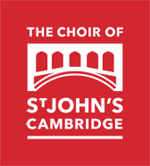Magnificat 3

- Angus Crichton-Stuart, Joshua Davidson, Lucas Nair-Grepinet (treble)
- Alasdair Austin (counter tenor)
- Carlos Rodríguez Otero (tenor)
- Thomas Butler, Alexander Hopkins (bass)
The third instalment in our critically-acclaimed Magnificat and Nunc Dimittis series, featuring nine settings of the Evening Canticles and recorded whilst Andrew Nethsingha was Director of Music.
Compared to the expansive musical periods showcased in the previous Magnificat volumes, Magnificat 3 centres on a much more focused period of just twenty years (1945-1965). By doing so, Nethsingha showcases the contextual impact of the dates of composition on a much more heightened scale than before - from George Dyson’s setting composed at the close of World War II to Bryan Kelly’s canticles written at the height of the Swinging Sixties.
Magnificat 3 also explores three generations of composer-pupil relationships in settings by Charles Villiers Stanford, Herbert Howells and Bryan Kelly. Stanford’s Magnificat & Nunc Dimittis in B flat was described by his self-proclaimed “son in music”, Howells, as an “astonishing work”. Howells’ impression of Kelly’s Magnificat & Nunc Dimittis in C was less straightforward: “My dear, I will tell you one thing about your setting. After each performance, the church will have to be re-consecrated!”.
Two of Howells’ works feature on the album. The inclusion of Howells’ Westminster Service seems especially appropriate in light of Andrew Nethsingha’s appointment as Organist and Master of the Choristers at Westminster Abbey earlier this year. His St Paul’s Service is illuminated by an in-depth musical analysis by Former Director of the Royal School of Church Music, Andrew Reid, included in the album booklet.
The album opens with Pavel Chesnokov’s Nunc Dimittis. A leading Russian choral musician in the 20th century, he gave up composition forever after the Soviet authorities destroyed the cathedral where he worked - a story which only seems more poignant today in light of the war in Ukraine.
The album also features Philip Moore’s setting commissioned especially for the choir in 2006, the year before Andrew Nethsingha began his 15-year tenure with the choir. Nethsingha has dubbed him “the finest living representative of the long tradition of British organist-composers".
Other settings include Dyson’s Magnificat & Nunc Dimittis in F and Leighton’s Collegium Magdalenae Oxoniense, one of two settings of Evening Canticles by the composer, and the second to feature on a St John’s album.
This release is the latest in a series of recordings dedicated solely to the Evening Canticles, with previous releases Magnificat and Magnificat 2 released in 2019 and 2021 respectively. Both were critically acclaimed and were awarded a Gramophone Editor’s Choice; Magnificat 2 was described by BBC Music Magazine as “a package that no lover of the Anglican choral tradition will want to miss.”
Carlos, a member of the choir at St John’s, said:
“Recordings at St John’s are some of the most enjoyable things we do, and Magnificat 3 has been a particularly fulfilling project for me personally. We recorded it during my first year in the choir, during which I felt enormously privileged to encounter the St John’s approach to repertoire both familiar and new. Each provides different musical challenges, and offers opportunities to grow as individuals and as a group. All within, of course, the supportive and warm atmosphere of our choir, and under Andrew’s totally inspiring direction. That has been the most enriching part of my experience at St John’s: we love singing this music, and we love singing it together, and I hope this comes through in our new album.”
Track list
- Nunc Dimittis from 'Six Choruses for Mixed Voices' Op.40 No.4 (Pavel Chesnokov)
- Magnificat 'St Paul's Service' (Herbert Howells)
- Nunc Dimittis 'St Paul's Service' (Herbert Howells)
- Magnificat 'Sancti Johannis Cantabrigiense' (Philip Moore)
- Nunc Dimittis 'Sancti Johannis Cantabrigiense' (Philip Moore)
- Magnificat 'Collegium Magdalenae Oxoniense' (Kenneth Leighton)
- Nunc Dimittis 'Collegium Magdalenae Oxoniense' (Kenneth Leighton)
- Magnificat 'Westminster Service' (Herbert Howells)
- Nunc Dimittis 'Westminster Service' (Herbert Howells)
- Magnificat in F (George Dyson)
- Nunc Dimittis in F (George Dyson)
- Magnificat in B flat (Charles Villiers Stanford)
- Nunc Dimittis in B flat (Charles Villiers Stanford)
- Magnificat in C (Bryan Kelley)
- Nunc Dimittis in C (Bryan Kelley)
Reviews
Alexandra Coghlan, Gramophone
Martin Cullingford, Gramophone
Andrew McGregor, BBC Radio 3 Record Review
Fiona Maddocks, The Guardian
Steven Whitehead, Cross Rhythms
Colin Clarke, Classical Explorer
David Truslove, Opera Today
Robert Matthew-Walker, The Organ
John Quinn, MusicWeb International
Organists’ Review



